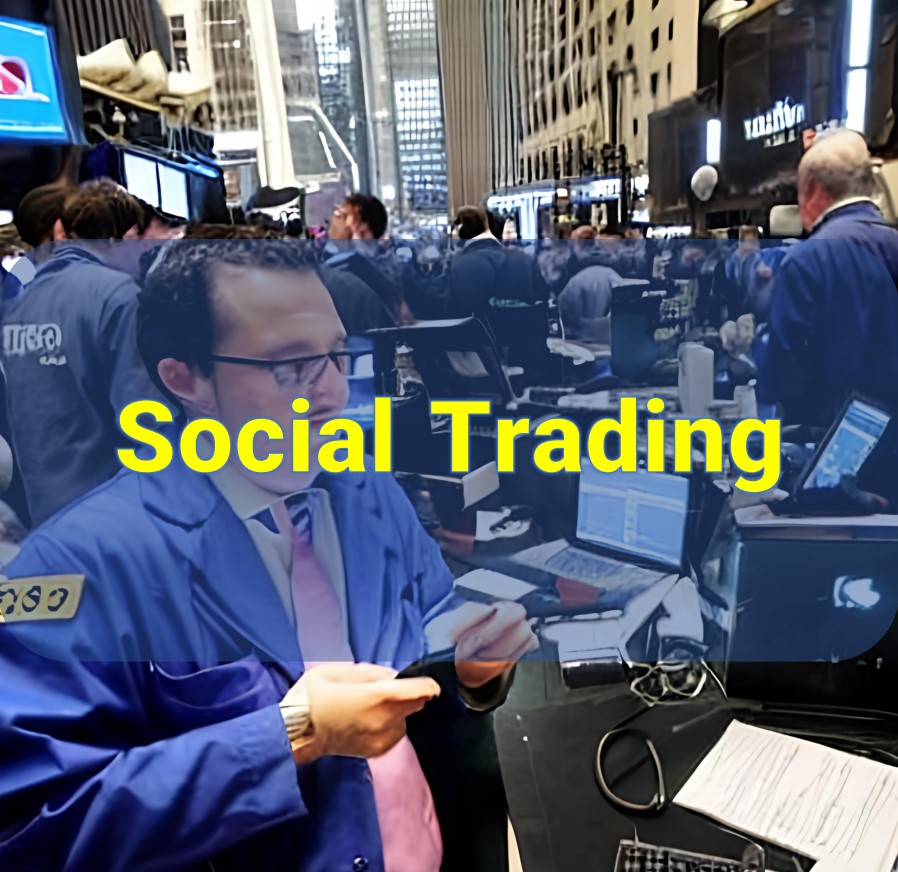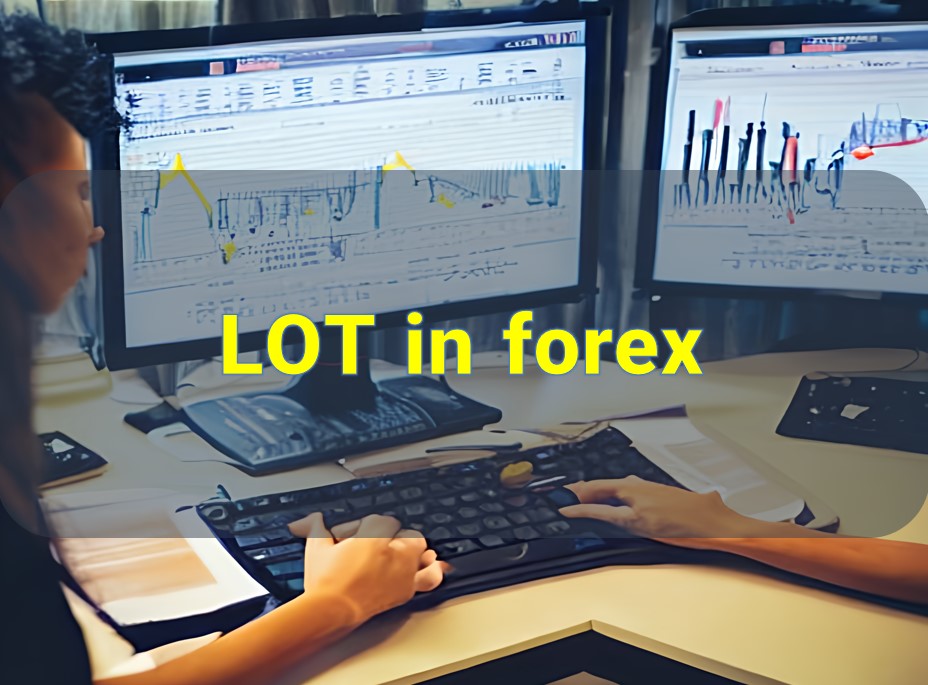Social trading is a relatively new concept in the world of finance that has gained popularity in recent years. It is a form of online trading that allows traders to follow and copy the trading strategies of other traders. Social trading platforms enable traders to share their trading ideas, strategies, and performance with other traders in a social network-like environment. This article will explore the concept of social trading, its advantages and disadvantages, and how it works.
What is Social Trading?
Social trading is a type of online trading that enables traders to follow and copy the trades of other traders. It is a form of collaborative trading that allows traders to share their trading ideas, strategies, and performance with other traders in a social network-like environment. Social trading platforms provide traders with the ability to connect with other traders, follow their trades, and copy their trading strategies.
Social trading platforms typically provide traders with a range of tools and features that enable them to find and follow other traders. These tools may include a search function that allows traders to search for other traders based on their trading style, performance, and other criteria. Social trading platforms may also provide traders with the ability to view the trading history and performance of other traders, as well as the ability to communicate with other traders in a social network-like environment.
How Does Social Trading Work?
Social trading platforms work by connecting traders with other traders in a social network-like environment. Traders can follow and copy the trades of other traders, as well as share their own trading ideas, strategies, and performance with other traders. Social trading platforms typically provide traders with a range of tools and features that enable them to find and follow other traders.
When a trader follows another trader, they can view the trades that the other trader makes in real-time. Traders can also view the trading history and performance of other traders, as well as the strategies that they use to make trades. If a trader decides to copy the trades of another trader, they can do so automatically using the copy trading feature provided by the social trading platform.
Copy trading is a feature that allows traders to automatically copy the trades of other traders. When a trader copies the trades of another trader, they can set the amount of money that they want to invest in each trade, as well as the maximum amount of money that they want to invest in total. When the trader that they are copying makes a trade, the trade is automatically copied to their account.
Is social trading safe?
Socialtrading, like any form of investment, carries certain risks. While it offers opportunities for individuals to follow and copy the trades of more experienced traders, it’s important to approach social trading with caution and understand the potential risks involved. Here are some factors to consider:
1. Lack of control: When you engage in social trading, you’re essentially relying on the decisions of other traders. This means you have limited control over your own investment decisions, and the success or failure of your trades depends on the performance of others.
2. Reliance on others’ expertise: Following successful traders can be appealing, but it’s important to assess their track record, trading strategy, and risk management practices. Just because someone has had success in the past doesn’t guarantee future performance. It’s crucial to thoroughly research and evaluate the traders you intend to follow.
3. Market volatility and risk: Social trading doesn’t eliminate the inherent risks associated with financial markets. Prices can fluctuate rapidly, and unexpected events can impact the performance of trades. It’s essential to have a clear understanding of the risks involved and set appropriate risk management measures.
4. Copying without understanding: Simply copying trades without comprehending the underlying reasons can be risky. It’s important to educate yourself about financial markets, trading strategies, and analysis techniques to make informed decisions and better understand the trades you’re copying.
5. Trustworthiness of the platform: Ensure you choose a reputable social trading platform with proper regulations and security measures in place. Research the platform’s track record, user reviews, and the transparency of its operations.
6. Psychological factors: Social trading involves emotions such as fear and greed, which can impact decision-making. It’s crucial to have a disciplined approach, set realistic expectations, and avoid getting caught up in the herd mentality.
To mitigate risks, consider starting with a small amount of capital, diversifying your copied trades across different traders and assets, and regularly reviewing and adjusting your portfolio. It’s also advisable to seek professional financial advice and education to improve your trading knowledge and skills.
Remember, no investment is entirely safe, and social trading is no exception. It’s important to understand the risks involved and make informed decisions based on your own risk tolerance and financial goals.
What Is a Trade Signal?
A trade signal is a recommendation or indication that suggests the opportune time and conditions to execute a trade in the financial markets. It is generated by various sources, including technical analysis, fundamental analysis, or automated trading systems, and is used by traders and investors to make informed decisions.
Trade signals provide information about potential entry and exit points for a particular asset, such as stocks, currencies, commodities, or cryptocurrencies. They can be generated based on a variety of factors, including price patterns, technical indicators, news events, economic data, or quantitative algorithms.
Here are a few examples of trade signals:
1. Technical indicators: Traders use various technical indicators, such as moving averages, stochastic oscillators, or Relative Strength Index (RSI), to identify specific patterns or trends in price movements. When these indicators generate certain signals, such as a crossover of moving averages or an overbought/oversold condition, it may suggest a potential buying or selling opportunity.
2. Chart patterns: Traders analyze price charts to identify patterns that may indicate a potential trend reversal or continuation. Examples of chart patterns include head and shoulders, double tops or bottoms, triangles, or flags. When these patterns form, they can signal potential entry or exit points.
3. Fundamental analysis: Fundamental factors, such as earnings reports, economic indicators, geopolitical events, or company news, can trigger trade signals. For example, positive earnings results or a favorable economic report might lead to a bullish signal, while negative news might trigger a bearish signal.
4. Social trading platforms: In the context of social trading, trade signals can be generated by successful or experienced traders. When these traders execute trades, their actions can be automatically copied or shared with other users, providing them with trade signals to consider.
It’s important to note that trade signals are not guarantees of success and should be used as a tool for decision-making rather than blindly followed. Traders should conduct their own analysis, consider risk management strategies, and evaluate the suitability of trade signals within their own trading plans.
Advantages of Social Trading
There are several advantages of social trading, including:
Access to a Wide Range of Trading Strategies
Social trading platforms provide traders with access to a wide range of trading strategies. Traders can follow and copy the trades of other traders who have different trading styles and use different strategies. This can enable traders to diversify their portfolio and reduce their risk.
Learn from Other Traders
Social trading platforms provide traders with the ability to learn from other traders. Traders can view the trading history and performance of other traders, as well as the strategies that they use to make trades. This can enable traders to learn from the experience of other traders and improve their own trading skills.
Save Time
Social trading can save traders time. Instead of spending time researching and analyzing the markets, traders can follow and copy the trades of other traders who have already done the research and analysis. This can enable traders to focus on other aspects of their life or business.
Reduced Risk
Social trading can reduce the risk of trading. By following and copying the trades of other traders, traders can reduce their exposure to risk. This can enable traders to diversify their portfolio and reduce their risk.
Disadvantages of Social Trading
There are also several disadvantages of socialtrading, including:
Risk of Copying Poor Traders
One of the biggest risks of social trading is the risk of copying poor traders. Traders who copy the trades of other traders are relying on the performance of those traders. If the trader that they are copying is not performing well, they may lose money.
Lack of Control
Social trading can also result in a lack of control. Traders who copy the trades of other traders are relying on the decisions of those traders. This can result in a lack of control over their own trading decisions.
Cost
Social trading can be expensive. Social trading platforms may charge fees for their services, and traders may also need to pay fees for copying the trades of other traders.
Overreliance on Social Trading
Social trading can also result in an overreliance on social trading. Traders who rely too heavily on social trading may not develop their own trading skills and strategies. This can result in a lack of independence and self-sufficiency.
Conclusion
Social trading is a relatively new concept in the world of finance that has gained popularity in recent years. It is a form of online trading that allows traders to follow and copy the trading strategies of other traders. Socialtrading platforms enable traders to share their trading ideas, strategies, and performance with other traders in a social network-like environment.
Social trading platforms provide traders with a range of tools and features that enable them to find and follow other traders. These tools may include a search function that allows traders to search for other traders based on their trading style, performance, and other criteria.
While there are several advantages of social trading, there are also several disadvantages. Traders who copy the trades of other traders are relying on the performance of those traders, which can result in a lack of control over their own trading decisions. Social trading can also be expensive, and traders who rely too heavily on social trading may not develop their own trading skills and strategies.
Overall, social trading is a powerful tool that can enable traders to learn from other traders, diversify their portfolio, and reduce their risk. However, it is important for traders to approach social trading with caution and to develop their own trading skills and strategies.







